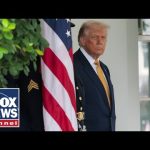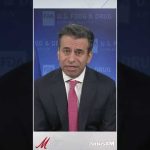It seems that some surprising revelations have surfaced regarding former President Barack Obama and the Russian collusion narrative that had dominated headlines for years. Recent documents suggest that Obama may have known well before the 2016 election that claims about Russian interference were overstated, yet he pushed the narrative anyway. This new information has come to light thanks to the efforts of Tulsi Gabbard, who has been busy combing through pages of documents that indicate the intelligence community was directed to conjure up reports that falsely supported the idea of Russian election meddling.
According to the documents, the intelligence community assessed that Russian efforts did not influence U.S. election results. In fact, they concluded that the alleged criminal activities did not reach a level of sophistication that could alter the outcome of the elections. However, this firsthand knowledge did not seem to stop Obama and his administration from instructing intelligence agencies to produce assessments that aligned with their narrative. The blatant discrepancy raises eyebrows about the motivations behind the original claims of Russian collusion.
Gabbard has expressed her concerns regarding this situation, labeling it a conspiracy to undermine the will of the American voter. She believes that those involved in this apparent cover-up should face serious consequences and has made a criminal referral to the Department of Justice. This development adds another layer of intrigue to the already convoluted story of election interference and raises questions about accountability in the highest levels of government.
The news has drawn the attention of various commentators who have weighed in on the implications of these findings. Some believe this could lead to a reevaluation of how the past few years have been framed by the media and political leaders alike. For instance, individuals like Michael Shellenberger have pointed out that the narrative surrounding Russian interference was often about discrediting the Trump campaign rather than unveiling any real threats to democracy. The suggestion that Democrats might have been projecting their own unscrupulous tactics onto Trump only complicates the matter further.
Furthermore, there appears to be a shadow of ongoing investigations lurking in the background, specifically concerning individuals like former FBI Director James Comey. Insights from the newly released documents hint that the FBI may have been used as a tool to leak information and sway public perception during the tumultuous election cycle. The implication that the intelligence community was functioning more as a public relations branch rather than an objective entity is concerning and reflects deeper issues within governmental integrity.
As this saga unfolds, voters and the general public are left to gather information and ponder the motives behind such actions from high-ranking officials. With each new document released, it seems that questions only multiply. In the fast-paced world of political intrigue, one can only wonder what additional surprises await as more details come to light. It appears that the story of Russian collusion is far from over, and the implications of these revelations could shift the political landscape substantially.




